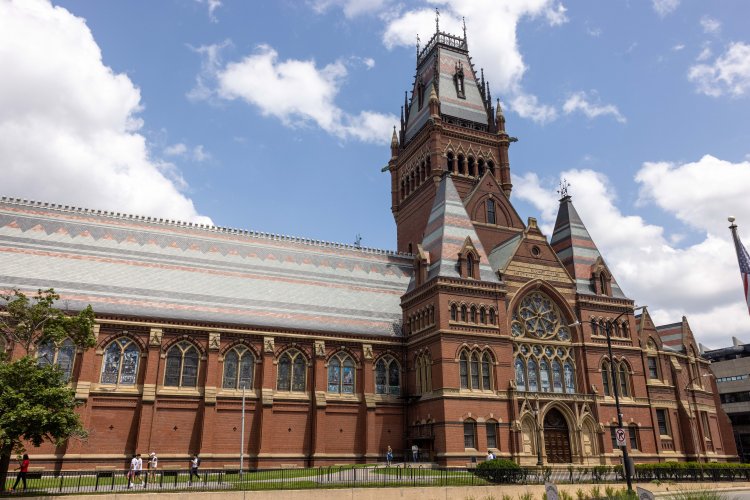Harvard files lawsuit against Trump administration following $2 billion reduction in federal funding
The Trump administration has warned that it may withhold as much as $9 billion in grants to the university, citing what it claims is a violation of Title VI of the Civil Rights Act concerning the treatment of Jewish students.

In a statement regarding the lawsuit, Harvard President Alan Garber expressed that the university decided to challenge what it deemed unreasonable demands from an administration antisemitism task force that sought to "control whom we hire and what we teach." He emphasized that these demands "would impose unprecedented and improper control over the university" and were made without genuine engagement on the issue of antisemitism. The lawsuit was filed in federal court in Massachusetts.
In response to the suit, White House spokesperson Harrison Fields stated, "The gravy train of federal assistance to institutions like Harvard, which enrich their grossly overpaid bureaucrats with tax dollars from struggling American families is coming to an end. Taxpayer funds are a privilege, and Harvard fails to meet the basic conditions required to access that privilege."
The Trump administration has commenced a review of approximately $9 billion in grants and contracts with Harvard, citing concerns over the treatment of Jewish students that allegedly violated Title VI of the Civil Rights Act, particularly during protests related to the Israel-Gaza war that affected campuses across the nation last year.
The administration has already rescinded more than $2 billion in federal funding from Harvard and is contemplating an additional pull of $1 billion in grants. Furthermore, the Internal Revenue Service is examining the university’s tax-exempt status, while the Department of Homeland Security has threatened to revoke Harvard’s capacity to enroll international students, who comprise about 27 percent of its total student body. The Education Department is also investigating the university's federal funding.
“These actions have stark real-life consequences for patients, students, faculty, staff, researchers, and the standing of American higher education in the world,” Garber noted.
The lawsuit claims that the federal government has launched a sweeping assault on billions in research funding at Harvard and several other institutions, “with little warning and even less explanation.” Representing the university, lawyers asserted that the federal government is “withholding federal funding as leverage to gain control of academic decisionmaking at Harvard.”
To prevent the loss of funds, the administration previously stipulated several reforms, including changes to governance, hiring and admissions policies, reporting of foreign students and students with green cards for “conduct violations,” auditing academic programs for antisemitism with an external party, terminating diversity initiatives, and revising student discipline procedures.
“All told, the tradeoff put to Harvard and other universities is clear: Allow the Government to micromanage your academic institution or jeopardize the institution’s ability to pursue medical breakthroughs, scientific discoveries, and innovative solutions,” the lawsuit asserts, stating that the broad research funding freezes have “nothing at all to do with antisemitism.”
Lawyers representing Harvard include individuals with ties to the GOP and the Trump administration, such as Robert Hur, William Burck, Steven Lehotsky, who clerked for the late Justice Antonin Scalia, and Scott Keller, a former Texas solicitor general.
They argue that the administration’s actions violate First Amendment rights and the Title VI compliance procedures that are required prior to the revocation of federal funding. Harvard contends that the government has “made no effort to follow those procedures” before freezing or terminating its funding, which include steps like seeking voluntary compliance, conducting a hearing, and releasing a report of findings.
The lawyers also indicated that the funding freezes would compel the university to either decrease or suspend ongoing research initiatives, terminate employment contracts, and reduce funding for various departments and programs.
If Harvard is forced to utilize its own resources instead of the federal funding, it may have to limit the number of graduate students it accepts and reduce its faculty and research staff. They further claimed this situation could adversely affect the Boston area economically, as Harvard is one of the largest employers in Massachusetts.
“Defendants’ actions threaten Harvard’s academic independence and place at risk critical lifesaving and pathbreaking research that occurs on its campus,” the lawsuit concluded, adding that the freeze is “part of a broader effort by the Government to punish Harvard for protecting its constitutional rights.”
Jessica Kline for TROIB News
Find more stories on Business, Economy and Finance in TROIB business












